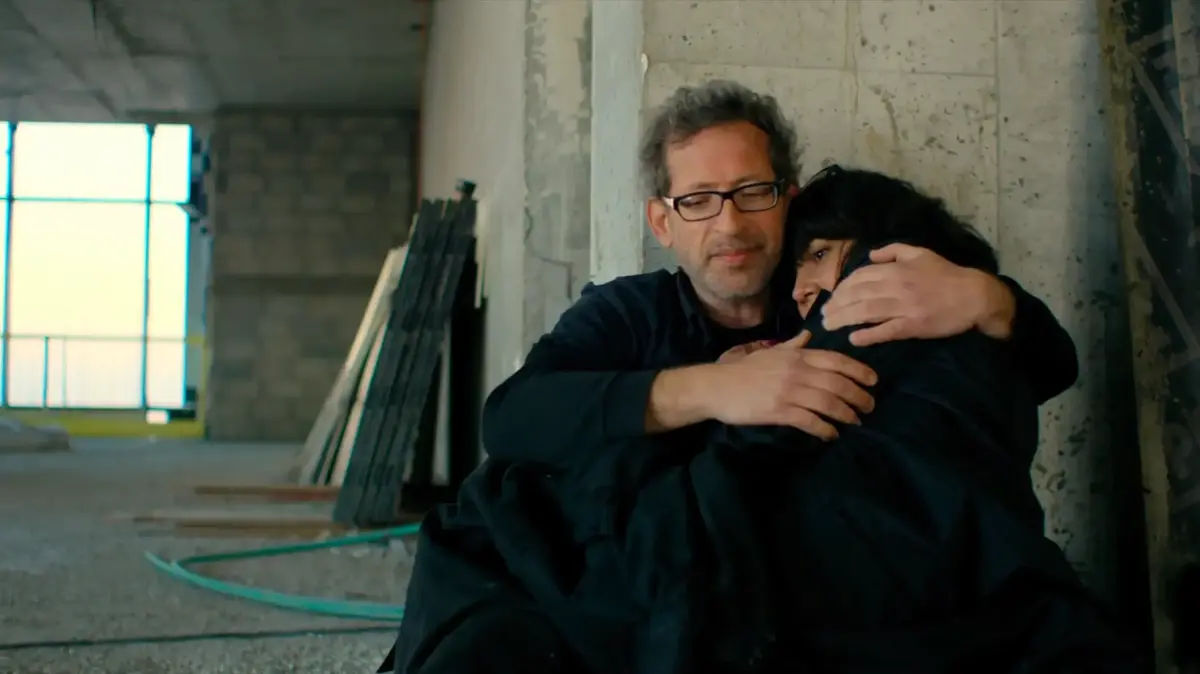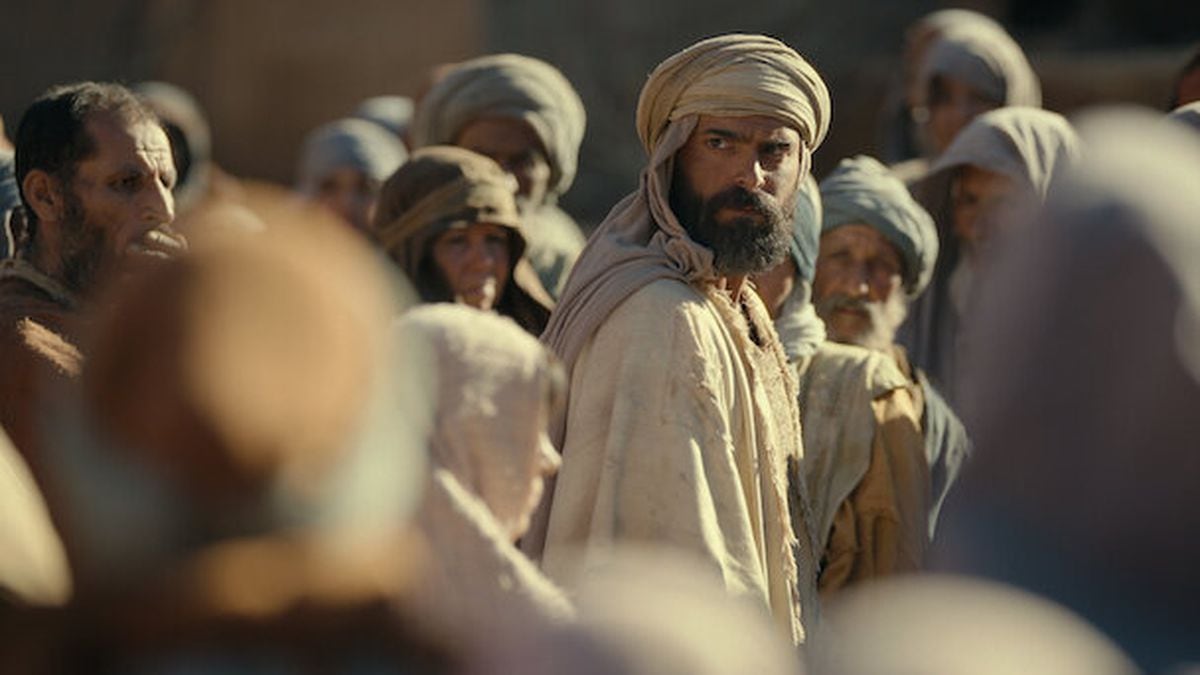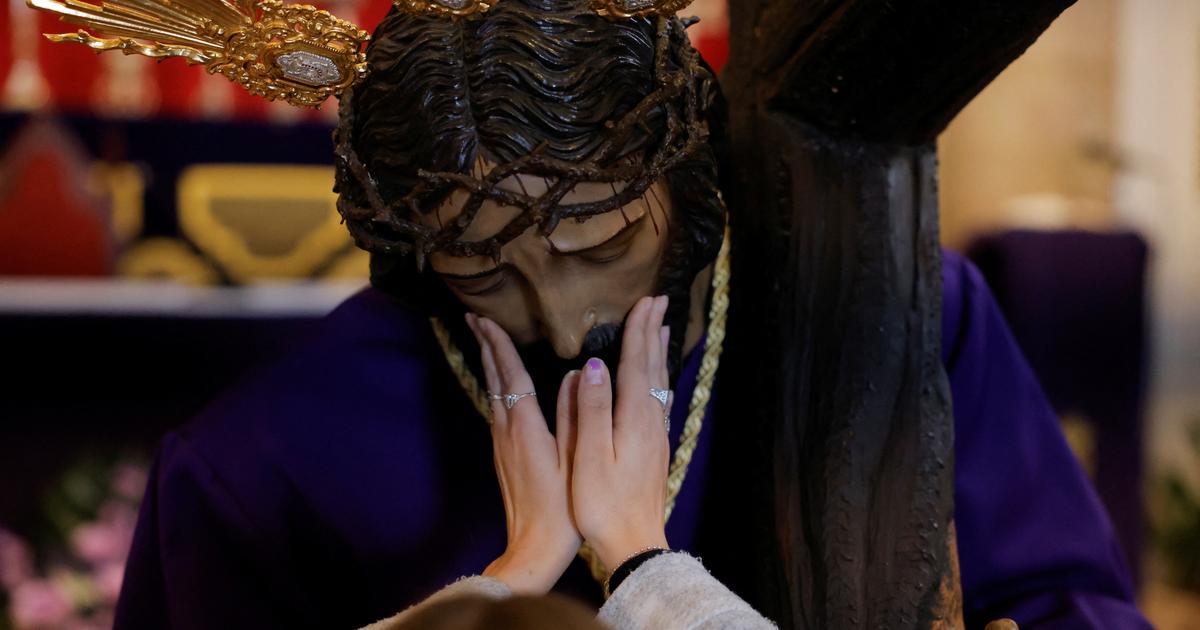culture
TV
TV review
With Eternity Not Afraid: Thank God for series like "The Jews Are Coming" and "Judah"
It is not clear why Israeli television does not use one of the biggest cards available to it, the Jewish book treasure.
When this happens the work only benefits: "Judah" wraps between the mythologies of Jews and vampires into a new product that is backed by a large volume, while "The Jews Are Coming" illustrates our eternity
Tags
The Jews are coming
Judah
TV review
Ido Yeshayahu
Thursday, September 10, 2020, 12:00 p.m.
Share on Facebook
Share on WhatsApp
Share on general
Share on general
Share on Twitter
Share on Email
0 comments
The song "Trees" performed by the band Tomorrow`s Rain with Micha ...
Naomi Lvov and Maayan Blum in a sketch from the second season ...
A street in Givatayim is named after the actress Lia Koenig 6.9.20
VIP Survival, Benny Baruch's Discharge Episode
The Race for a Million All-Stars 2020, Yael and Yossiel
I'm thinking of finishing it
A sketch from the second season of the "IPS" series here ...
Jane Bordeaux and Aya Zehavi Feiglin band in cover version ...
The world to come
Vanessa Kirby
Avi Peretz and Lior Heftzadi, MKR, a winning kitchen
Courtesy here 11
It is amazing to see how carefully the Hebrew television work is turning its back on a formidable tool at its disposal - the Jewish heritage.
The inspiration for my books with the book is almost entirely absent from Israeli series.
There were some righteous people in Sodom (did you see what I did here?): The plot of the sitcom "Half Menashe" took place during the time of the Judges.
Each season of the drama "Parshas Hashavua" is weak on a different book in the Torah, and each chapter in it corresponds to one Parsha from it - before it was canceled after three seasons even before it had time to touch on "Desert" and "Things".
In the second season, the "Hassamba Generation 3" group was tasked with stopping a dangerous messianic cult from laying hands on an ancient Jewish treasure with mighty powers.
It was followed by "The Jeweler," whose plot relied on Kabbalistic mysticism.
There were also the biblical sketches of "Cleaning the Head," which shaped the Israeli audience as early as the Seventies. And if you insist on naming the pedagogical programs, you can also mention "Two Holds", "Rainbow and Cloud", "100 in the Bible" and the like.
All of these are far from attesting to the rule.
Even in series that could have been expected to have greater correspondence with the Jewish book treasure, as in the religious and ultra-Orthodox genre, this hardly happens.
True, in the corners of "Stisel" sometimes floats a spirit of follower stories, but for the most part, if there is a mythical dimension in the series, it stems from the very lifestyle of its protagonists' antiquity.
Looking for recommendations or want to recommend new series?
Want to just talk about TV?
Join our Facebook group,
Digging Broadcast
More on Walla!
NEWS
In smoke smoke: The reason Manich is so successful is that we are desperate
To the full article
Its use of Judaism has been perfected.
Zion Baruch, "Judah" (Photo: HOT)
This swearing is the thing that injects freshness into contemporary series that rely on Jewish sources.
HOT's "Judah," which recently returned for a second season every Thursday, is a catchy example.
Zion Baruch's series wraps up two existing mythologies and invents a new one.
Vampires have always been a very Christian genre, devilish creatures who shy away from crosses and holy water, but what happens if you bring in a little Judaism of Daddy's house?
"Judah" follows Yehuda, an Israeli guy whose name, Judaism is far from him.
While in Romania he is bitten by a beautiful vampire (the excellent Anastasia Payne) who belatedly discovers that he is a Jew - with blood that she must not consume.
The protagonist becomes a vampire species himself, although being a member of the religion of Moses he becomes something slightly different, which even gets another name, Hebrew: Mutmindam - the bread of the words death, sex and blood.
From the very beginning, "Judah" is attached in the navel to ancient Jewish writings.
In the first season, this was mainly reflected in quotes from the sources that opened each chapter, and Rabbi (Mike Burstein) who accompanied the protagonist through the process and never missed an opportunity to shower him with exhausting and preachy Torah teachings explaining the Jewish vampire laws.
At one point Judah was already rolling his eyes when another such nuisance arrived, reflecting the viewers' reaction as well, but the identification with him did not really neutralize the feeling that the rabbi was there to pass on the information to us in the least interesting way imaginable.
And for the record, even the twists and turns about it afterwards - nice as they may be - did not improve it in retrospect.
More on Walla!
NEWS
"Wonderland" Special: A kicking satire, a guest who stole the show and the big star that no one knows
To the full article
The Torah speeches were oppressive.
Mike Burstein and Baruch, "Judah" (Photo: Doron Ofer)
Based on the first three episodes (out of seven) of the second season, "Judah's" use of Judaism has become much more sophisticated this time around.
It reveals to us another dimension in the mythology of the creatures of darkness, this time werewolves, the only ones who can kill their mother, and it turns out that they are the descendants of Esau ben Yitzchak - the man whose biblical emphasis emphasizes the excess rate.
It does not end here: since according to the Midrash, Esau's head rolled into the place where his father was buried in the Cave of the Patriarchs, his skull becomes the "McGaffin" of the season, the object that all the various forces in the series are now striving to obtain.
Yes, it has a bit of a silly dimension to it, but "Judah" is aware of it, collects it with both hands and weaves an entertaining camp out of it.
Its effects are impressive and the directing of Manny Yaish ("The Watchers") is cool and stylish in an offensive, not to mention ornate.
Along with the excellent workmanship, the constant correspondence with the ancient history of the Jewish people constantly covers up the less-successful components of "Judah", giving it enormous volume.
Ready depth.
More on Walla!
NEWS
Due to the extreme "losing Alice", the result is an oppressive and exhausting viewing experience
To the full article
Isaac greets Jacob and Esau, "The Jews are coming" (screenshot here 11)
This is exactly what is happening in the most controversial Israeli series today, "The Jews Are Coming," which ended its excellent fourth season this week.
It is probably easier to discern the declared layer of the satire program: to use thousands of years of Jewish events and characters to tell us something about the here and now.
It places the rich Jewish past as a mirror image of our day, connecting what was to what was (and probably also what will be).
History in the basic sense - to know what happened to learn lessons, whether it is Yitzhak Avinu or Yitzhak Rabin.
But the wonderful thing that happens by the way, and the one that makes "The Jews Are Coming" something special and even exciting, is that the look she puts out turned out to be two-sided.
Not only is mythology founded on prose today, but vice versa: contemporary humanity - with its pettiness and fragility - breathes life into the legendary characters.
Turns them into flesh and blood and their lives and surroundings into recognizable landscapes.
More on Walla!
NEWS
"My father was a homeless man. He slept outside in a minus 20 degree cold. I was very worried about him."
To the full article
The past and the present merge.
Sketch of Joseph's tomb, "The Jews Are Coming" (screenshot here 11)
Despite its extensive preoccupation with "The Jews Are Coming," very little relates to its wonderful period reconstructions, which resurrect scenes upon scenes from the history of the Jewish people.
The minority of extras may be detrimental in some cases - for example, when the children of Israel, AKA a people of Kakot, number barely twenty people - but even so, placing them in the primordial places and these majestic stocks paints them and everything in epic colors.
More than once during the viewing it is hard not to wonder where the hell they found these locations.
This is also the reason why the protest against "the Jews are coming" is pouring the baby out with the water.
It is clear that the program includes quite a few sketches that will upset or bother any person of faith, but reference to this aspect alone completely misses the big picture.
An image that sifts mounds and mounds of interpretations and shows us our ancestors, both of Judaism and of Zionism, as human beings, connects us to them in thickets of familiar flaws.
This is what makes them eternal.
More on Walla!
NEWS
The creators of the Jews come to reveal which sketch was "a little dangerous" and made them cry
To the full article
There is no more perfect representation of this than the closing song.
Each season ends with a contemporary song, very sober, sung by the characters we saw throughout.
In the past there were "every direction", "man without eternity" and "power of attorney".
This time it was Shalom Hanoch's "Don't Call Me a People," a performance that, of course, was produced long before the storm even broke out (or resumed, because it was already there in the early days of the show).
The very fact that the song sounds like a response or counter to complaints against "Jews are coming" - with lines like "Not everyone is stupid and not everyone is thankful / These are Jews and these are Jews / A person remains a person / Do not call me a people", and "Not from God, I am afraid of you "- illustrates how much what she does will always hit.
Share on Facebook
Share on WhatsApp
Share on general
Share on general
Share on Twitter
Share on Email
0 comments















